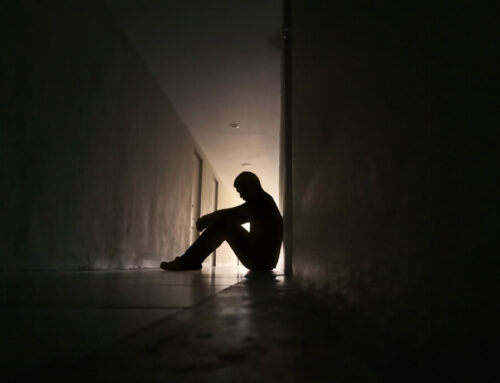Depression is usually described as a mental illness that can take several different forms, affecting people in various ways.
That said, you may have heard about mental health counseling that aims to help with problems such as high-functioning depression. The term high-functioning depression isn’t actually a medical term but a colloquialism used by the masses to describe a masked or unnoticed mental illness.
On that end, high-functioning depression isn’t a recognized mental condition, but in some instances, it may indicate clinical depression. In these cases, people seem fine on the outside; they go about their business productively, and the people around them aren’t even aware of the fact that the patient feels depressed.
In this article, we’ll shed more light on the problems of high-functioning depression and anxiety.
About High-Functioning Depression
The medical community often, on the one hand, agrees that the term high-functioning can effectively showcase that depression may be an invisible condition with no visible signs of mental illness; others actually point out that it may also be an effort to mask the symptoms to avoid the stigma of having a mental illness.
On the other hand, “high-functioning” may also often imply that the symptoms are less severe. This may lead to people dismissing their symptoms, making them feel like others won’t take their problem seriously, or failing to address the issue with adequate treatment.

Symptoms of High-Functioning Depression
High-functioning depression and anxiety may cause several physical and emotional symptoms, such as:
- Persistent feelings of emptiness and sorrow.
- Guilt and feeling worthless.
- Irritability and anxiety.
- Losing interest in once-loved activities.
- Feelings of hopelessness and pessimism.
- Social isolation.
- Fatigue and tiredness.
- Slow movements and speech.
- Troubles with staying focused, impaired decision-making, and a bad memory.
- Difficulties falling asleep and changing sleep patterns.
- Appetite changes lead either to weight gain or loss.
- Thoughts of self-harm, death, and suicide
- Physical signs of mental illness may include cramps, headaches, aches, pains, and digestive problems without a clear cause that don’t respond to treatment.
The symptoms of high-functioning depression can range from mild to severe, but often, patients try to mask the signs of the mental illness from others. Naturally, sometimes, people around the patient will notice the symptoms but might dismiss them until the patient becomes open about it.
The Causes Behind High-Functioning Depression
In most cases, depression is caused by several factors in combination, including the following:
- Issues with brain chemistry: Mood-regulating neurotransmitters (brain chemicals) may experience imbalances, leading to depression.
- Trauma: Experiencing stressful conditions and trauma can significantly contribute to developing mental illnesses such as PTSD (post-traumatic stress disorder), anxiety, and depression.
- Genetics: The mental disorder may also have a genetic component to it. It can actually run in families.
- Medication: Certain compounds may also lead to depression as a side effect.
- Substances: Certain compounds like recreational drugs and alcohol may also lead to or exacerbate the mental disorder.
- Medical conditions: People with severe conditions such as cancer, heart disease, chronic pain, or Parkinson’s disease may be at higher risk of developing depression as well.
- Personality: certain personality types and traits may make some people more prone to experience mental disorders.
- Life events: Stressful and upsetting events such as the death of a loved one, job loss, or the end of a romantic relationship may trigger depression.
Diagnosis
Before we get started, it’s essential to keep in mind that “high-functioning” depression isn’t an actual diagnosis but a way to describe dysthymia occasionally. Still, it can also happen with other depressive disorders.
As such, these depressive disorders are the following:
- MDD or major depressive disorder: Also called clinical depression, MDD describes severe depression lasting longer than two weeks.
- PDD or persistent depressive disorder: Dysthymia is depression that lingers on for more than two years with periods of milder and more severe symptoms.
- SAD or seasonal affective disorder: This is the type of mental disorder patients will usually experience during the winter when the sun is more or less absent. Naturally, it usually recedes during summer.
- Bipolar depression: People with the disorder may alternate between periods of severe depression and high-energy elevated moods (mania).
- PMDD or premenstrual dysphoric disorder: This is a more severe form of PMS or premenstrual disorder with highly prominent mood changes before the menstrual period begins.
- Perinatal depression: A form of depression pregnant women may experience, encompassing bost depression during and after pregnancy (antepartum and postpartum depression)
- Psychotic depression: People with this mental disorder also have psychosis symptoms like delusions and hallucinations.
It’s vital to remember that some people with these signs of mental illness may still be productive in everyday life. Those who can hide their symptoms or still manage to do well in life may be considered people with high-functioning depression.
Hiding Depression
There might be several reasons for people to feel like they need to hide their symptoms from others:
- They might come from a culture of family where mental illness is taboo.
- They think they can overcome it alone.
- They are uncomfortable with showing signs of perceived weakness or vulnerability.
- They are ashamed of their mental disorder.
- They think that they will be abandoned and their life will crumble if people around them find out about their problems.
Treatments for High-Functioning Depression
Even though some patients may “function” fine with the mental disorder, that doesn’t mean that they don’t need treatment. On that end, options may include:
- Therapy: Mindfulness techniques and dialectical and cognitive behavioral therapy can help patients can help them accept depression and the shame and guilt they might feel because of it. Therapy can help take a step back from trying to mask the disorder, allowing working through the things that were causing the depressive issues in the first place.
- Support groups: These can be helpful, safe places where patients can discuss their problems with others who have similar experiences.
- Medication: Antidepressants will probably also be crucial to any depression treatment plan (especially in severe and even moderate cases). These drugs help improve the imbalances of the brain’s neurotransmitters.

There’s Always Help Available
It can sometimes be unbelievable that someone who is doing well in life, who’s productive, and who leads an active lifestyle may actually have depression. Still, it’s essential to remember that this mental disorder can affect anyone, even those who are successful, active, conceived as famous or rich, and living in ideal circumstances.
It’s also crucial to address that depression isn’t a weakness or a character flaw, and it’s definitely not something to be ashamed of.
If you are experiencing depression (high-functioning or not), getting help is essential so you can start feeling better as soon as possible. Fortunately, depression is among the most treatable mental health issues.
As such, feel free to contact our clinic in Hialeah, FL, to learn more about the most potent treatments for depression.



